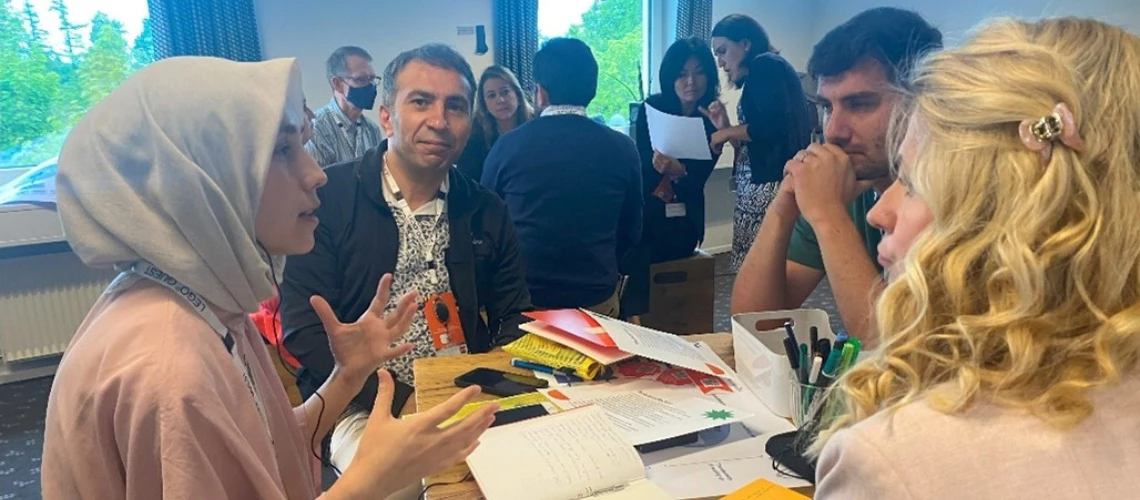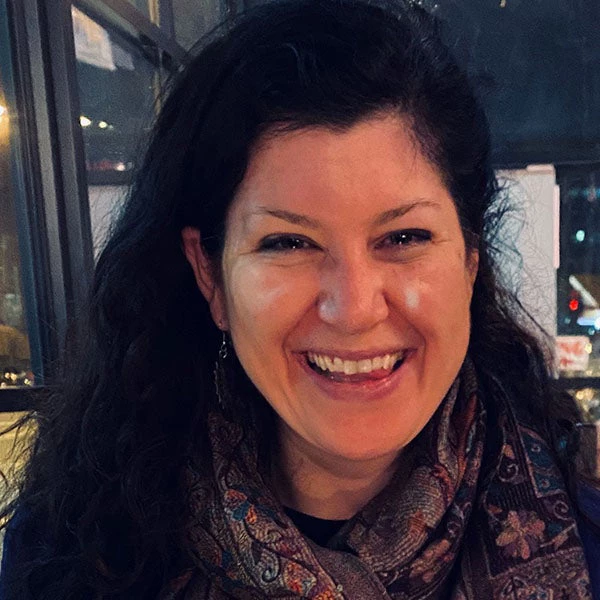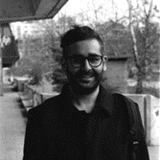 Caption: Policymakers from Türkiye sharing reflections during an Early Childhood Education Policy Academy workshop at the 2022 LEGO Idea Conference. Copyright: World Bank
Caption: Policymakers from Türkiye sharing reflections during an Early Childhood Education Policy Academy workshop at the 2022 LEGO Idea Conference. Copyright: World Bank
As access to early childhood education (ECE) services expands at an exponential rate globally, policymakers face challenges to ensure they are equitable, affordable, and of quality. These challenges, such as fragmented and underfinanced systems, insufficient workforce capacity, inadequate monitoring, and inappropriate teaching and learning strategies, persist universally across countries and regions. There is immense opportunity for countries to learn from one another to develop customized solutions aligned with their respective contexts.
Helping policymakers and practitioners deepen their skills
The World Bank’s Early Childhood Education Policy Academy offers open and free self-paced courses for policymakers and practitioners seeking to deepen their ECE skills, as well as a cohort modality that engages policymakers from select countries in identifying policy goals and constraints, learning from expert insights on relevant ECE themes, and problem solving with peers facing similar challenges.
This cohort modality is designed progressively through consultations and feedback loops and leverages a global network of experts to share best practice and theory via courses, workshops, and bespoke technical assistance. Policymakers also participate in learning exchanges within and across multisectoral country delegations to build working relationships and co-create solutions.
Five solutions to address common policy goals
The first cohort of 100 policymakers and World Bank staff from 12 countries graduated in late 2022. Policymakers told us that the program was timely and equipped them with skills to strengthen their early learning systems. Below, we delve into how the policy academy helped delegations craft tailored solutions addressing five common policy goals.
1. Build effective ECE systems and coordination – A course on Building Effective Early Learning Systems, learning exchanges, and individualized technical assistance with a few countries helped delegations address a systems-level challenge to towards coordinated policy programming and investments in ECE. As a result, Liberia reestablished a national ECD coordination body, Central African Republic drafted a national integrated ECD policy, and Paraguay revised their national regulation guidelines to align with international best practices, ensuring their successful implementation in the Paraguayan context through a shorter, user-friendly format.
2. Strengthen the ECE workforce – Through a series of workshops and learning exchanges inspired by the World Bank’s work on Quality Early Learning: Nurturing Children’s Potential, delegations discussed the importance of attracting, preparing, supporting, and retaining their ECE workforce. Cambodia subsequently strengthened national capacity building activities to address the persistent shortage of ECE teachers, modernize teacher training facilities, and improve teacher trainers’ capacity. Morocco finalized a new national training program for preschool educators and developed a roadmap for its operationalization. In the transition of early childhood to the National Department of Basic Education, South Africa reviewed strategies from other countries and made priorities on national training, qualifications, and career progression systems for ECE teachers to inform a human resource development plan.
3. Measure ECD outcomes and ECE quality – Delegations reflected on the why, what, who, and how of measurement through two courses and documentation through blogs. Because effective monitoring is key to informed policymaking, many delegations opted to focus the policy academy’s bespoke technical assistance on designing national measurement strategies and tools. For instance, Liberia developed a school readiness assessment system, Senegal conducted a study to inform a national information system for ECE, Türkiye piloted a user-friendly tool to understand school needs, and Uganda is adapting Teach ECE, a classroom quality measurement tool, to the local context.
4. Improve curricula, materials, and learning environments and promote play – Policymakers engaged in several workshops on learning through play, play-based classrooms, transforming learning through curriculum and pedagogy, and physical spaces to facilitate quality learning, as well as attended the LEGO Idea Conference held in June 2022. As a result, Türkiye updated their ECE curriculum and accompanying teacher training to have greater focus on early literacy, numeracy, and play-based methodologies, El Salvador revised their ECE curriculum to support the application of their ECD learning standards, and Paraguay incorporated provisions in their 2024 education budget to promote age-appropriate learning environments.
5. Strengthen parent and community engagement – Through workshops and learning exchanges, delegations discussed the key role families and communities play in ECE systems and elements of quality parenting programs. North Macedonia used the program technical assistance to design and pilot an inclusive parent engagement program, and Senegal developed parent-child intervention guides and materials, as well as strengthened capacity to implement the National Parental Education Program.
Taking an adaptive approach
The adaptive approach of this inaugural cohort has proven to be a key ingredient to ensuring that the demand-driven content support policymakers to build confidence and impact early childhood policy and practice. We are applying these lessons learned as we launch a second cohort, this time focusing on investing in quality affordable childcare.
The case studies below provide more detail on specific ways that the Policy Academy supported policymakers to strengthen their early childhood systems.
- Cambodia: English | Español | Français | العربية
- Central African Republic: English | Español | Français | العربية
- El Salvador: English | Español | Français | العربية
- Liberia: English | Español | Français | العربية
- Morocco: English | Español | Français | العربية
- North Macedonia: English | Español | Français | العربية
- Paraguay: English | Español | Français | العربية
- Senegal: English | Español | Français | العربية
- South Africa: English | Español | Français | العربية
- Türkiye: English | Español | Français | العربية
- Uganda: English | Español | Français | العربية
The Early Childhood Education Policy Academy is managed by the World Bank’s Early Learning Partnership (ELP), a multi-donor trust fund associated under the Foundational Learning Compact (FLC) umbrella trust fund, that provides resources and technical assistance to support early childhood development and early learning around the world.
To receive weekly articles, sign-up here




Join the Conversation